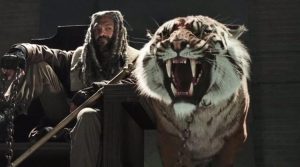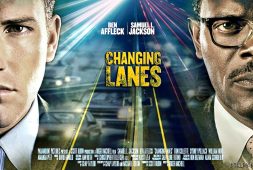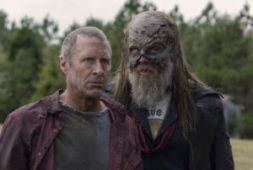
Do people manufacture hope simply because they can’t deal with the possibility that there might be none? This is a question that is not only about how people react to crisis, but also about the very nature of meaning in the universe. Are we merely animals who are so fearful of the unknown that we create entire mythologies (or even religions) in order to give ourselves a sense of hope?
French philosopher Voltaire famously said that “if God didn’t exist, it would be necessary to invent him.” Another quote attributed to a first century Roman thinker, Seneca the Younger, says “Religion is regarded by the common people as true, by the wise as false, and by the rulers as useful.”
While these ideas are somewhat elitist and maybe even a little offensive, I still see an element of truth in them. I am a pastor, a thinker, and definitely a “religious” person, but I also see how people are commonly duped by religion every day. How many times do we have to see another story about a cult leader who convinces people to sell everything they have and give it to these “modern day prophets”? Or worse, how many times do we see cult leaders convincing people to even take their own lives or the lives of others for the sake of their teachings?
While it might seem a bit strange, I am a Christian who is a walking contradiction. I am a man of faith, but I am also a skeptic. I am someone who believes that a man named Jesus rose from the dead, but I also am full of doubt when I hear almost any preacher on television talking about miracles while asking for money. I believe there is a God and that His son Jesus was God in the flesh who lived and died for our sins. But I also know that there are many con-artists out there who love to control the masses with religious ideas. So I am not shocked when so-called faith healers get caught manufacturing miracles in exchange for bucket loads of money.
This is probably why I laughed out loud during the scene on TWD tonight when Carol first met Ezekiel. When Carol started chuckling uncontrollably in front of Ezekiel and his pet tiger, I was laughing right along with her. The scene was so bizarre and Carol so easily saw through it, that her only reaction was to laugh. She knew immediately that what she was witnessing was a crazy mythology that, ironically, others were taking seriously. But she couldn’t keep a straight face and go along with it. The scene was just hilarious.
Later in the show, we find out that Carol was not wrong. This new group of people in their comfortable community called “the Kingdom” are controlled by a mythology created by their leader, Ezekiel. But Ezekiel immediately detects that Carol is not buying it, so he comes clean to her when they are able to speak to each other privately (only after my new favorite character, Jerry, leaves them alone – “Dueces!”). Ezekiel admits that he is a former zookeeper who saved the tiger’s life and that he was an actor who was good at playing kings. He also talks a little bit about his motive for this elaborate act during his conversation with Carol. (This was parallel—and word for word in moments—to a conversation with Ezekiel and Michonne in the comics.)
Ezekiel: People want someone to follow. It’s human nature. They want someone to make ’em feel safe. And people who feel safe are less dangerous… more productive. They see a dude with a tiger, shoot — they start tellin’ stories about finding it in the wild, wrestling it into submission, turning it into his pet. They make the guy larger than life, a hero. And who am I to burst their bubble? Next thing you know, they treat me like royalty. They wanted — They needed someone to follow, s-so I-I acted the part. I faked it till I made it.
This really seems to be the point of the episode, and possibly the whole show. People play different parts to create order in the midst of chaos. Ezekiel puts on a proverbial mask in order to get people to follow him. Carol realizes that this is not much different than what she does. She misleads by playing the meek and mild housewife in order to get people to underestimate her. Many other characters on the show do similar things. Rick plays the part of the sheriff – with his cowboy hat, southern drawl and his quick-draw gun fighting. Morgan plays the wise old pacifist who is like the travelling Samurai. Even Negan plays the reluctant homicidal dad, who has to keep his children in line every once in a while (by bashing their heads in with Lucille). I could go on and on describing the man-made roles that most of the characters play on the show.
But Carol doesn’t want to play this game. She is a skeptic who knows exactly what Ezekiel is up to. At the same time she also doesn’t really want to be part of the lie. I think that she wants to be all done with lying, even though she easily slips into her mild housewife routine while walking around “the kingdom.” My theory is that she is looking for hope that is not just made up of lies. Maybe she is looking for some hope that is based on truth.
I have a close friend (who is an agnostic) who told me once that it doesn’t matter if the things that I believe about Jesus are true. All that matters is that they make me a better person. He would also say the same thing about most of the religions of the world. Not unlike the message of the show tonight, I think that he was saying that religion is very useful in many ways regardless of whether it is true.
In actuality, I believe the opposite of this. I believe that faith is only as good as what you have faith in. If I have faith in something that turns out to be false, I believe that my faith has been wasted. For example, if I have faith in a person who I paid to fix my roof for twenty thousand dollars, and instead of fixing it, they go to the Bahamas, my faith was misplaced. My faith was only as good as the person or thing I had faith in. It does matter whether the thing I have faith in is true or not.
Apostle Paul deals with this idea directly in the book of 1 Corinthians. In this letter to a first century church in Greece, Paul is dealing with a group of people who are questioning whether believing in the resurrection of Jesus was important. Let’s look at how Paul responds to these people.
1 Corinthians 15:12-20 (NLT)
12 But tell me this—since we preach that Christ rose from the dead, why are some of you saying there will be no resurrection of the dead? 13 For if there is no resurrection of the dead, then Christ has not been raised either. 14 And if Christ has not been raised, then all our preaching is useless, and your faith is useless. 15 And we apostles would all be lying about God—for we have said that God raised Christ from the grave. But that can’t be true if there is no resurrection of the dead. 16 And if there is no resurrection of the dead, then Christ has not been raised. 17 And if Christ has not been raised, then your faith is useless and you are still guilty of your sins. 18 In that case, all who have died believing in Christ are lost! 19 And if our hope in Christ is only for this life, we are more to be pitied than anyone in the world.
20 But in fact, Christ has been raised from the dead. He is the first of a great harvest of all who have died.
Notice how Paul describes a faith that is not based on truth. He says that it is “useless” (vs. 14). Later in the same chapter he goes on to say, “And if there is no resurrection, ‘Let’s feast and drink, for tomorrow we die!’ (vs 32)”
Basically what Paul is saying is that, for the Christian, what we have faith in is crucial. If Jesus didn’t actually do these things, like rise from the dead, we are all wasting our time. This was an especially important message to a church in persecution. But I believe that it is equally important today.
As a senior pastor of a church in northern California, it is very important to me that our church talks about faith in this way. I teach people it does matter whether or not what we believe in is true. There may be messages people would like more than the message of the gospel, but I believe that teaching those kinds of things only lead us further away from truth. I think each and every one of us has to take seriously whether or not the things that we dedicate our lives to are based on something that is actually real and true. Otherwise, we might as well take Paul’s advice, and “eat and drink, for tomorrow we die.”
SEASON 7, EPISODE 2 DISCUSSION QUESTIONS:
1) Carol doesn’t know about Glenn and Abraham’s death. How do you think this knowledge would change how she would be acting right now?
2) Ezekiel fed the pigs walkers before he gave them to Negan’s group. Why do you think that they did this?
3) Do you trust the people in the kingdom? Should Carol trust them?
4) Why do you think Carol was laughing when she first saw Ezekiel?
5) Why do you think Ezekiel so quickly told Carol his backstory?
6) How do you think Rick will react when he meets Ezekiel? (Especially after last week’s episode)
7) Do you think truth matters when it comes to leadership?
8) Do you think truth matters when it comes to religion?
9) Paul says overtly that it matters whether the resurrection is true. Why do you think he is arguing for this?
10) Do you agree with Paul? Why or why not?
11) Do you believe that faith in something that is not true is “wasted faith”? Why or why not?
12) If it is true there is a God and His Son Jesus rose from the dead, what does that mean about the religions of the world? What does that mean about Christianity?
13) If the gospel is true, what does that mean in your life?
Thom McKee Jr. is a husband, father, pastor… and film geek (and brother of Jonathan McKee). Thom lives in Northern California with his wife and two kids.
Jonathan McKee
Jonathan McKee is the author of over twenty books including the brand new The Guy's Guide to FOUR BATTLES Every Young Man Must Face; The Teen’s Guide to Social Media & Mobile Devices; If I Had a Parenting Do Over; and the Amazon Best Seller - The Guy's Guide to God, Girls and the Phone in Your Pocket. He speaks to parents and leaders worldwide, all while providing free resources for youth workers on TheSource4YM.com. Jonathan, his wife Lori, and their three kids live in California.



